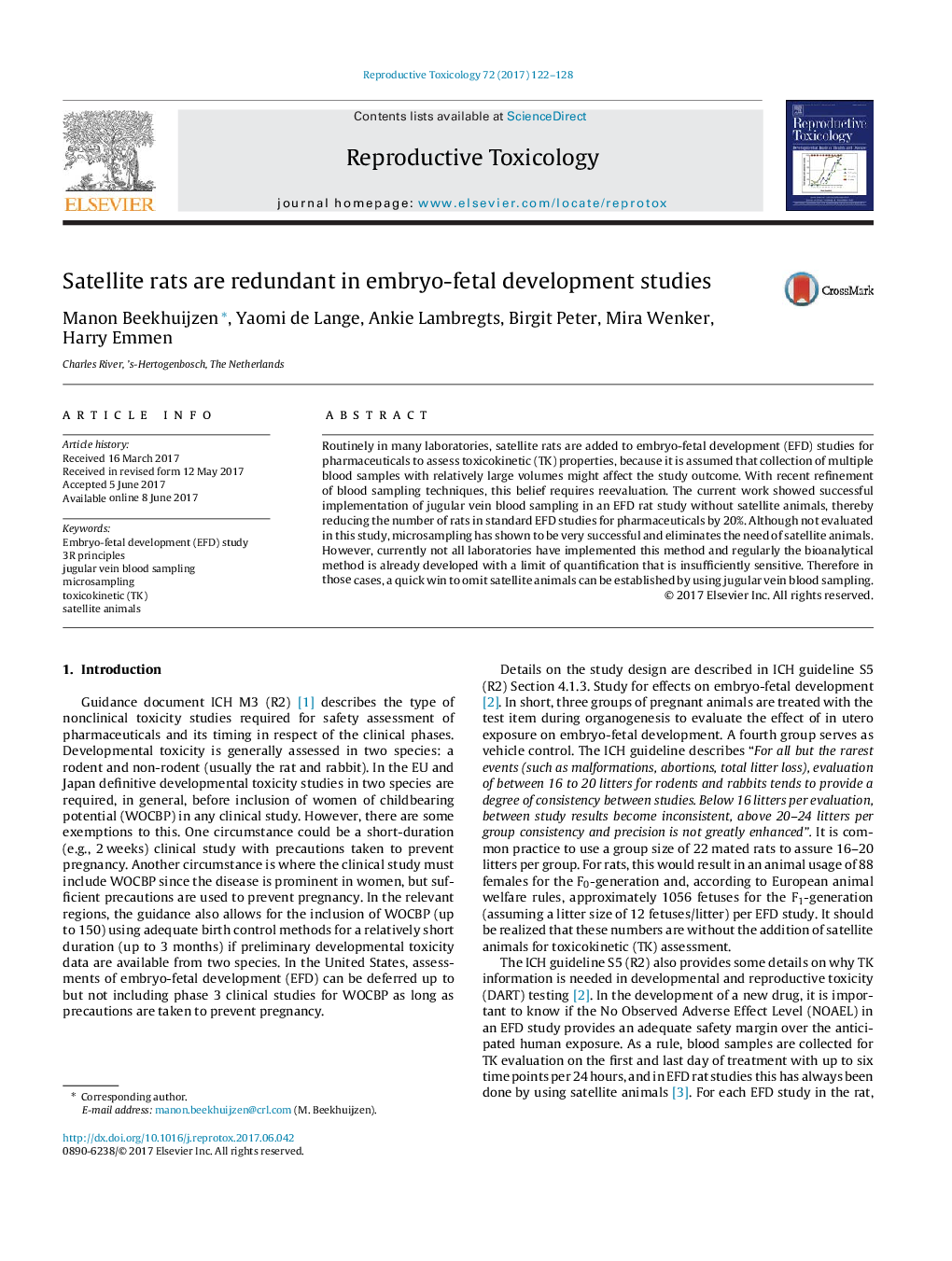| Article ID | Journal | Published Year | Pages | File Type |
|---|---|---|---|---|
| 5561547 | Reproductive Toxicology | 2017 | 7 Pages |
â¢Routinely, TK satellite rats are added to embryo-fetal development (EFD) studies.â¢Microsampling eliminates use of satellite rats, but is not always possible.â¢In those cases, jugular vein blood sampling would be a good alternative.â¢This was shown by an exploratory EFD rat study with no treatment-related findings.â¢In future, satellite rats can be omitted which reduces the animal usage by 20%.
Routinely in many laboratories, satellite rats are added to embryo-fetal development (EFD) studies for pharmaceuticals to assess toxicokinetic (TK) properties, because it is assumed that collection of multiple blood samples with relatively large volumes might affect the study outcome. With recent refinement of blood sampling techniques, this belief requires reevaluation. The current work showed successful implementation of jugular vein blood sampling in an EFD rat study without satellite animals, thereby reducing the number of rats in standard EFD studies for pharmaceuticals by 20%. Although not evaluated in this study, microsampling has shown to be very successful and eliminates the need of satellite animals. However, currently not all laboratories have implemented this method and regularly the bioanalytical method is already developed with a limit of quantification that is insufficiently sensitive. Therefore in those cases, a quick win to omit satellite animals can be established by using jugular vein blood sampling.
